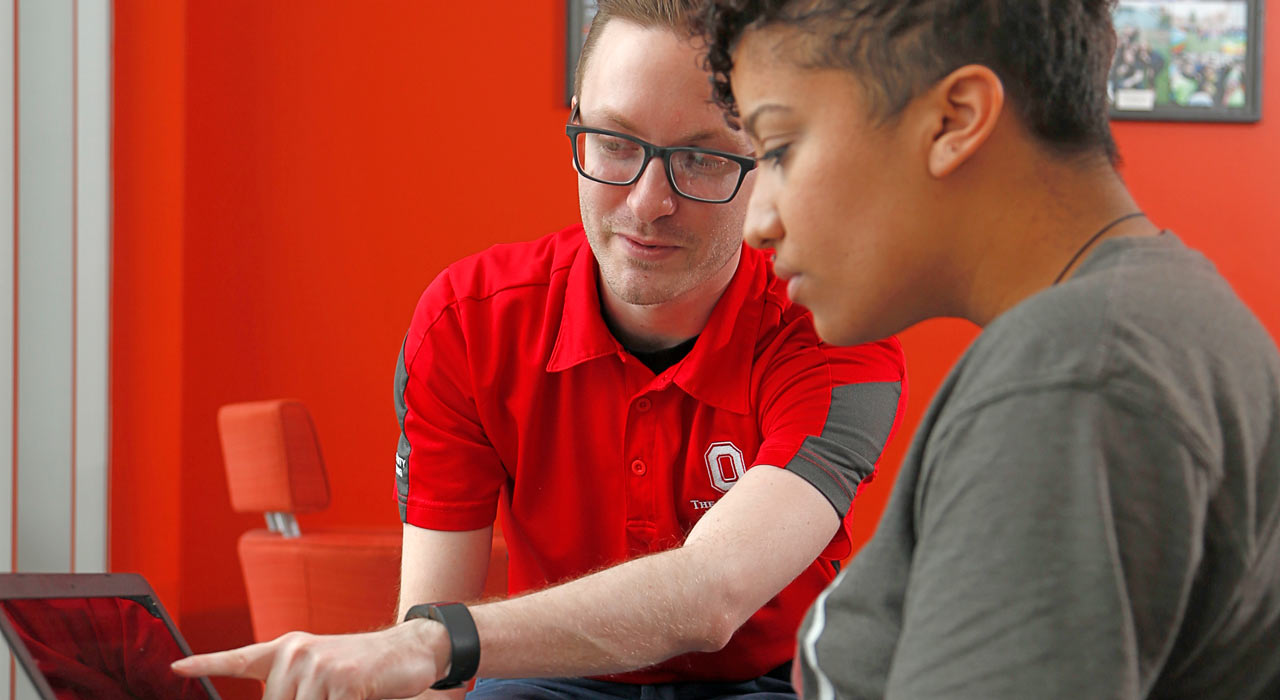Some call it academic genealogy — the “family tree” of great thinkers and the educators who taught them. When a program is strong, such as EHE’s Higher Education and Student Affairs (HESA), lineages form.
“Our field is small enough that you can trace the impact,” said Susan Robb Jones, professor and HESA program director. “You can look at the lineages and realize that you are part of something much larger than yourself.”
Professor Phil Tripp was a guiding force in the field. Through professional associations and teaching, he influenced generations of students, including Nobel Peace Prize nominee David Ives.
Faculty Emeritus Bob Rodgers (’65 MA, ’70 PhD) helped recruit Tripp to Ohio State. He advised Jones as well as Marcia Baxter Magolda (’76 MA, ’83 PhD), who became a leading scholar in the field.
Magolda is a frequent research collaborator with Patricia King, who once worked in Ohio State’s Office of Student Affairs. At the University of Michigan, King advised Matthew Mayhew, now Flesher Professor in Educational Administration at Ohio State.
And so the “family” grows.
HESA has had a long-standing national reputation as one of the oldest and most highly regarded graduate preparation programs in higher education. A robust number of alumni actively contribute to scholarship in the field.
“In large part I think our reputation comes from the caliber of the faculty who are known around the country for their cutting-edge thinking and scholarship,” Jones said.
In the ’70s and ’80s, researchers broke apart Tripp’s favored humanistic model of higher education to look at college students in terms of race, gender, faith and sexual identity. That resulted in a growing number of psychological theories about college students.
“Now, we’re putting the pieces back together to look at the college student holistically,” Jones said, “but acknowledging that part of the holistic perspective is understanding college students as racial beings and gendered beings, and that all those dimensions come together in a way that places students in a larger societal context.”
Current research includes Mayhew’s longitudinal study measuring how college impacts students, especially their attitudes toward people of other faiths and worldviews.
New faculty member Anne-Marie Nuñez is noted for her groundbreaking research on first-generation students, Latinos, migrant students and English learners.
Today HESA continues contributing to a body of scholarship about college students and their experiences.
“At the same time, we are extending that commitment to address contemporary and future realities of campus life and higher education,” Jones said, issues that include students who may feel marginalized or misunderstood.
“We have daily reminders that much work still needs to be done.”
Support new knowledge through research by a HESA graduate student
Give to The Porterfield-Dickens Student Personnel Assistantship Program Fund #605884

